This is a strategic step to develop preschool education in urban areas and industrial zones, ensuring fairness and sustainability.
Long-term vision
According to Ms. Nguyen Thi Nhung Quyen - Deputy Director of the Department of Education and Training of Ha Tinh, Decision 2270 is a particularly important decision, demonstrating the Government's deep concern for preschool education in the context of strong urbanization and industrialization. For Ha Tinh, Decision 2270 opens up a great opportunity for the locality to promote the development of preschool education, especially in coastal economic zones, industrial parks and urban areas that are on the rise.
Currently, the province has 256 kindergartens, including 234 public schools and 22 non-public schools; there are 173 private independent kindergarten groups and classes. Of which, the number of public schools in industrial zones is 28, the number of non-public schools in industrial zones is 5; the number of public schools in industrial clusters is 147, the number of non-public schools in industrial zones is 17.
In urban areas (9 wards), there are 38 public schools, 17 private schools, and 45 independent preschools; Total number of children attending preschools: Public accounts for nearly 84%, non-public accounts for 16%.
Ms. Nguyen Thi Cam Dan - Principal of Tay Thanh 2 Kindergarten (HCMC), also expressed her strong agreement with the Government 's preschool education development program, assessing this as a strategic policy, demonstrating long-term thinking in caring for future human resources.
“I support this program. The general goal is to improve the quality of preschool education in urban areas and industrial zones, helping children access quality, fair and equal educational services. The program's goal is very appropriate,” Ms. Cam Dan emphasized, adding that prioritizing investment in preschool education in urban areas and industrial zones is necessary, because these are places where many children of workers and laborers with difficult economic circumstances are concentrated.
The highlight of the program is to ensure the right to education for children in special circumstances, promoting equality in education. The program sets out a clear roadmap to 2045, demonstrating a proactive approach, linked to urbanization, industrial park development and the requirements of a knowledge society. The program not only improves facilities but also focuses on the quality of staff, innovates methods, applies technology and ensures fairness in access to education.
“Another strength is the inter-sectoral coordination mechanism between authorities at all levels, businesses, social organizations and parents, thereby effectively mobilizing social resources to develop the preschool system in a synchronous, equitable and sustainable manner. In my opinion, the program demonstrates a comprehensive, modern and humane vision, which is an important foundation for Vietnamese preschool education to integrate and develop sustainably in the future,” shared the Principal of Tan Thanh 2 Kindergarten (HCMC).
Considered the "capital" of the largest industrial park in the North, Bac Ninh currently has 979 preschools, including 425 preschools (382 public, 43 private) and 554 independent private facilities. The total number of children attending class is 221,871, of which 180,566 are public school children, 41,305 are non-public school children, reaching 100% of the rate of 5-year-old children attending school. The number of children of workers here is up to 88,124 children. Industrial parks such as Yen Phong 1, 2, Nam Son - Hap Linh; Que Vo; Tien Son; VSIP; Quang Chau... have a huge demand for childcare.
Ms. Nguyen Thi Ngoc - Deputy Director of the Department of Education and Training of Bac Ninh said that the locality is applying policies to develop preschool education in the period of 2020 - 2025, including preschool education in industrial parks by supporting compensation, site clearance, land tax, and construction of private preschools.
“Non-public kindergartens are leased land and exempted from land rent during the entire lease period, and are supported with site clearance costs according to the unit price prescribed by the People's Committee of Bac Ninh province at the time of site clearance compensation; supported with building classrooms (no more than 10 classrooms/school)...”, Ms. Ngoc informed.
Regarding credit, non-public establishments investing in school construction are supported with commercial bank loan interest rates of up to 6.5%/year, for a period of no more than 5 years, calculated from the date of disbursement.
The province also supports 20 million VND/group of children for independent private preschools to purchase equipment and teaching materials. For children of workers and laborers working in industrial zones, the support level is 160,000 VND/month/child. Teachers teaching at these facilities are supported with 800,000 VND/month.
In recent years, Ha Tinh has implemented many practical policies to develop preschool education in urban areas and industrial zones. The Department of Education and Training has advised the Provincial People's Committee to issue a plan to develop preschool education until 2030, with a vision to 2045. Grassroots units have also developed plans suitable for the locality.
Before July 2025, the (old) Departments of Education and Training had advised the district level to develop programs and plans for preschool education development suitable to local conditions. Some localities have specific policies such as Can Loc district supporting non-public preschool education facilities through renovating facilities, teaching equipment and supporting management work; Duc Tho district investing in advanced typical schools. In the 2021-2022 school year alone, Can Loc district supported 12 independent private facilities with a total budget of 554 million VND.
In addition, preschools in urban areas and industrial parks are given priority for land expansion, renovation and upgrading of facilities from various capital sources.
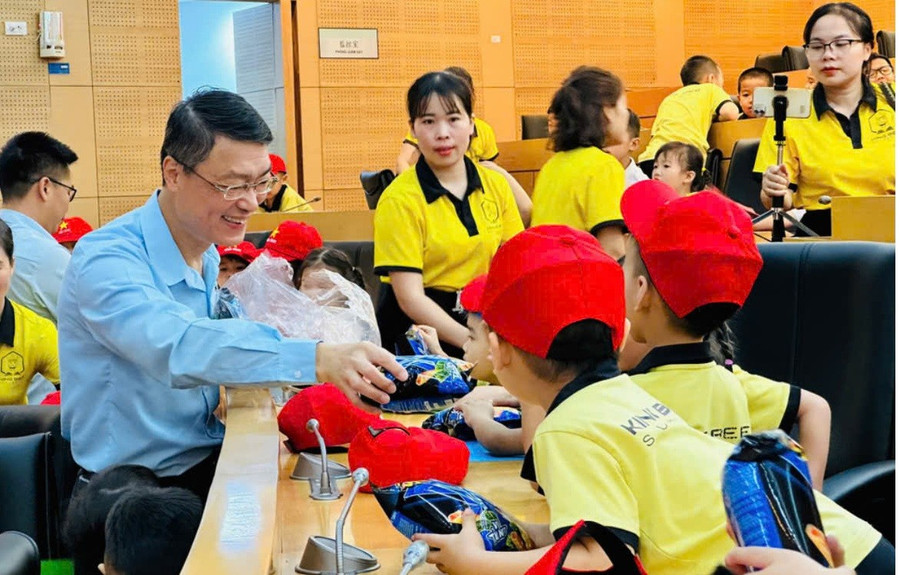
Remove bottlenecks
Deputy Director of the Department of Education and Training of Bac Ninh, Ms. Nguyen Thi Ngoc frankly pointed out the difficulties in preschool education in industrial parks, when the number of children is increasing but the teaching staff and facilities cannot meet the demand, leading to overload in many groups and classes.
Along with that, the number of independent preschools is increasing rapidly in densely populated areas, making professional management face many challenges. Planning and expansion of land funds are still slow, while the attention of local authorities to private and non-public facilities is still not really effective.
To remove this "bottleneck", before the merger, the former Bac Giang province issued Plan No. 33 dated May 24, 2024 on investment in building facilities and arranging teachers for public educational institutions in the period 2024 - 2030. The Department of Education and Training of Bac Ninh is advising the Provincial People's Committee to implement a similar plan to meet the needs after the merger. At the same time, continue to promote the socialization of education according to Decree 69/2008 to develop preschool education and improve the quality of child care and education.
In Ha Tinh, the implementation of the Program "Improving the quality of preschool education in the period 2025 - 2035, with a vision to 2045" also faces many difficulties. The rapid increase in the number of children from other localities following their parents to work in industrial zones is creating great pressure on a number of preschools, especially in wards in economic zones.
In addition, investment resources are limited, while the demand for standard facilities is high. Non-public preschools are small, with limited care conditions, and need support and close management from authorities.
Faced with these opportunities and challenges, in the initial phase of implementing the "Program 'Improving the quality of preschool education in urban areas and industrial parks in the period 2025 - 2035, with a vision to 2045', the Ha Tinh Department of Education and Training is actively advising the Provincial People's Committee to issue a specific implementation plan, continuing to mobilize the participation of the whole society to effectively implement the Program.
The goal is that by 2035, all preschool-age children, especially children of industrial park workers, will have access to a safe, equal and quality educational environment.
On that basis, Ha Tinh will specify 6 groups of tasks of the Program in accordance with local conditions, coordinate with departments and branches to review and adjust the school network, ensuring that each urban area and industrial park has enough public and private kindergartens.
The province also focuses on strengthening education management capacity at the commune level, while mobilizing the participation of businesses in building non-profit preschools to serve workers' children.
Along with arranging, training and fostering the teaching staff, Ha Tinh also promotes digital transformation in preschool education management, deploys models suitable to local characteristics, and expands coordination between families, schools and communities to improve the effectiveness of child care and education.
“In the context of the increasing number of children of workers and laborers, ensuring that children attend preschool is not only a caregiving task but also a fundamental step for developing future human resources. The program demonstrates strategic thinking at the national level.
This approach shows the State's initiative and long-term vision in planning preschool education policies - not only addressing immediate needs but also aiming for high quality standards, in line with the urbanization process, industrial park development and the requirements of the future knowledge society," said Ms. Nguyen Thi Cam Dan.
Source: https://giaoducthoidai.vn/quyet-dinh-2270qd-ttg-nang-tam-giao-duc-mam-non-khu-cong-nghiep-post753680.html


![[Photo] President Luong Cuong chaired the welcoming ceremony and held talks with United Nations Secretary-General Antonio Guterres](https://vphoto.vietnam.vn/thumb/1200x675/vietnam/resource/IMAGE/2025/10/24/1761304699186_ndo_br_1-jpg.webp)
![[Photo] Solemn funeral of former Vice Chairman of the Council of Ministers Tran Phuong](https://vphoto.vietnam.vn/thumb/1200x675/vietnam/resource/IMAGE/2025/10/24/1761295093441_tang-le-tran-phuong-1998-4576-jpg.webp)

![[Photo] Prime Minister Pham Minh Chinh chairs conference on breakthrough solutions for social housing development](https://vphoto.vietnam.vn/thumb/1200x675/vietnam/resource/IMAGE/2025/10/24/1761294193033_dsc-0146-7834-jpg.webp)

![[Photo] Prime Minister Pham Minh Chinh and South African President Matamela Cyril Ramaphosa attend the business forum](https://vphoto.vietnam.vn/thumb/1200x675/vietnam/resource/IMAGE/2025/10/24/1761302295638_dsc-0409-jpg.webp)
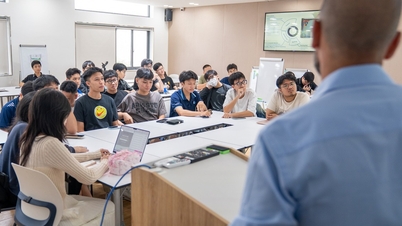

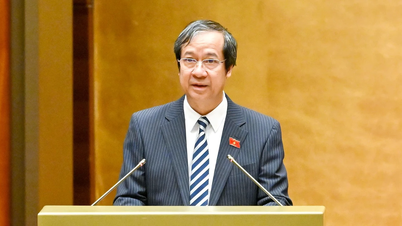


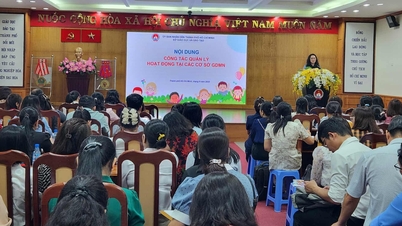
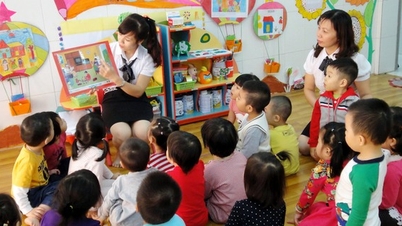



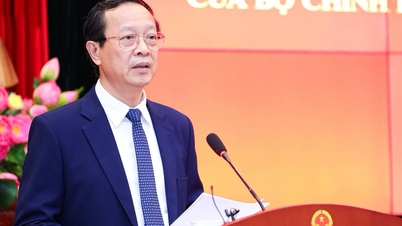

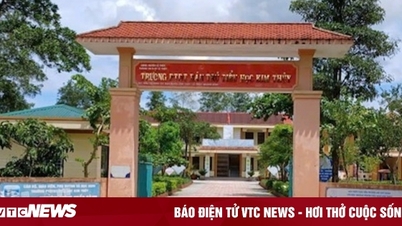

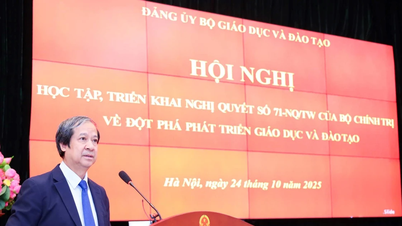
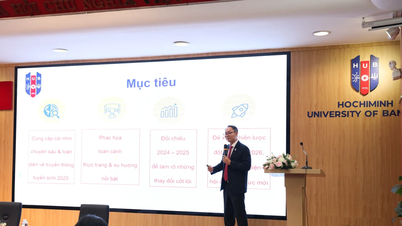




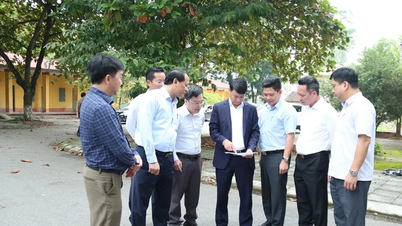
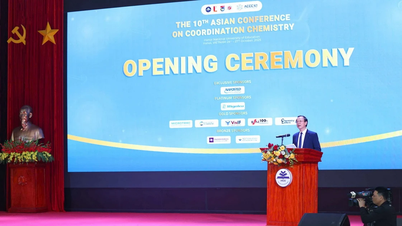
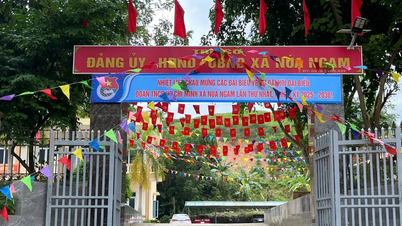


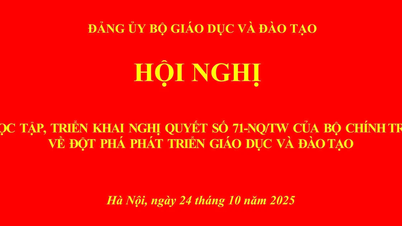




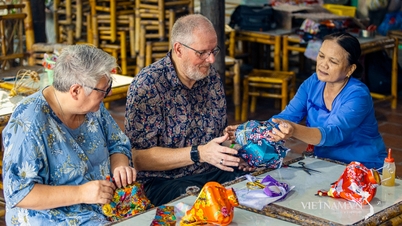































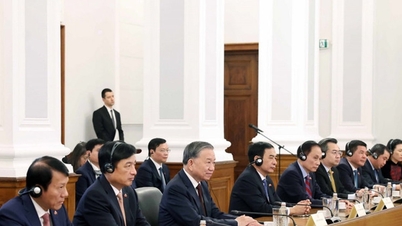

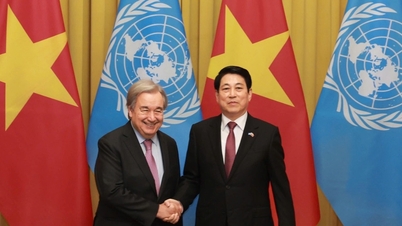






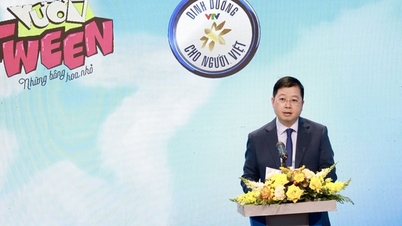
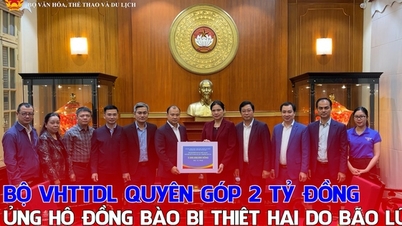


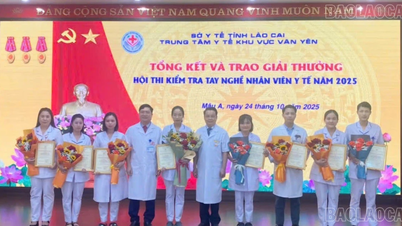

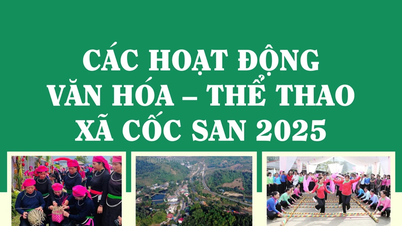























Comment (0)